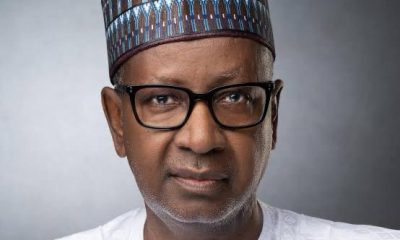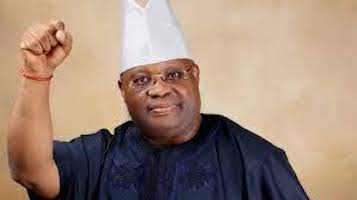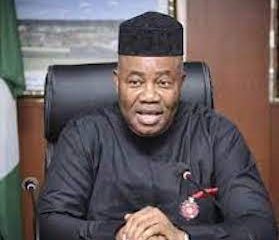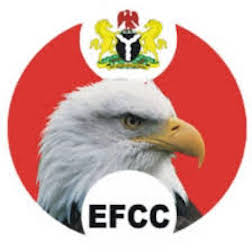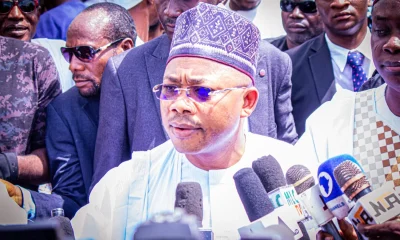Oil & Gas
NNPC Hails Appeal Court’s Judgment on OML 11
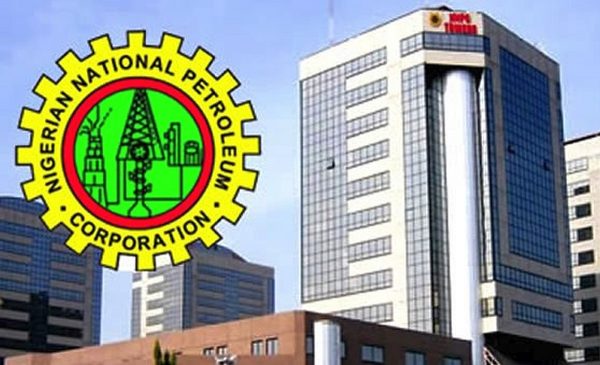
The Nigeria National Petroleum Corporation (NNPC) has hailed the recent Appeal Court judgment affirming its operatorship of the Oil Mining License 11 (OML 11), describing it as a huge victory for Nigeria.
The Corporation gave the commendation, in a statement signed by its spokesperson, Garba Deen Muhammad, in Abuja, on Friday.
He said the judgment was the beginning of addressing decades of host community restiveness.
The Appeal Court, sitting in Abuja on Monday, upturned the Aug. 23, 2019 ruling of the Federal High Court, Abuja, which held that the Shell Petroleum Development Company (SPDC) was entitled to the renewal of the Lease on OML 11.
In the ruling, the Appellate Court held that the Minister of Petroleum Resources had the discretion whether or not to renew the OML 11 Lease in favour of SPDC.
The court further held that the minister rightly exercised his discretion in awarding the OML 11 Lease to the Nigerian Petroleum Development Company (NPDC), a subsidiary of NNPC.
Mohammad quoted the Group Managing Director of NNPC, Malam Mele Kyari, as saying that the ruling had paved the way for the NPDC to lead a formidable OML 11 team towards bolstering productivity in a responsible, efficient, environmentally friendly and sustainable manner.
He said the resumption of operations on OML 11 would demonstrate the NPDC’s full commitment to develop and add value to its communities and the nation as a whole.
“We now have an opportunity to reconstruct a new beginning on OML 11, driven by global best practices and a social contract that would put the people and environment of the Niger Delta above pecuniary considerations.
“This is a huge victory for the government and people of Nigeria as we now have the impetus to responsibly unlock the oil and gas reserves the block offers for the benefit of all Nigerians,” said Kyari.
He further said the NPDC had taken over the assets and operations were in full gear, adding that the company was working closely with all stakeholders and partners to achieve the new vision of “responsible, smart engineering and environmental sustainability.”
This, he said, the Federal Government had endorsed for OML 11.
Kyari stated that the NPDC would pursue promotion of clean energy via its gas production with prospects of gas-to-power initiatives to “light up opportunities in the region,” and provide the much deserved industrialisation.
He noted that the environment would be a top priority for NPDC’s operations, as well as implementation of a robust host community engagement strategy to address subsisting issues, while agreeing to a transparent engagement model going forward.
He cautioned against any further legal challenge by the SPDC, stressing that it was about time Nigeria derived the benefit of the OML11 after over three decades.
“It is time to roll back the decades of despair and destruction with the emphatic Appeal Court ruling. It is time to unlock opportunities for economic development in the region.
“In the light of their inability to work on the Ogoni region of the block for over 30 years and the new beginning this judgement presents, further legal action by Shell will not only be futile.
“It would deprive Nigeria of an opportunity to make meaningful gains from OML 11 when the nation needs all the revenue it can get to move forward,” the GMD said. (NAN)
Oil & Gas
Lawyers Integral to Optimal Regulatory Compliance in Oil Business – NMDPRA
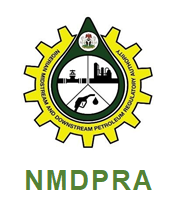
The Midstream and Downstream Petroleum Regulatory Authority (NMDPRA) said the role of legal practitioners is critical across the midstream and downstream energy business value chain in the promotion of optimal regulatory compliance.
Chief Executive, NMDPRA, Farouk Ahmed said this on Monday in Abuja at its 2025 General Counsel and Legal Advisers Forum for Midstream and Downstream Petroleum Companies in Nigeria.
The forum has its theme as ‘Advancing a Collaborative Compliance Culture in Nigeria’s Midstream and Downstream Petroleum Sectors’.
Ahmed was represented by Ogbugo Ukoha, Executive Director, Distribution System, Storage and Retailing Infrastructure, NMDPRA.
He said that the sector’s complexity required a unified compliance culture, rooted in robust and enabling legal frameworks, transparency, accountability and shared responsibility.
“The scope of operations of the sector covers hydrocarbon processing, wholesale marketing, transportation, storage, distribution and retail, and its complexity requires more than technical efficiency.
“The role of legal practitioners is critical across the midstream and downstream energy business value chain.
“They help to promote optimal regulatory compliance to set rules and standards of operations in our complex operational and volatile market environment,’’ he said.
Ahmed said that strategic and pragmatic solutions would be established from the forum to enhance performance of the sector towards creation of shared value for investors and the extensive market of Nigeria and the region.
He said that the Petroleum Industry Act (PIA 2021) had fundamentally restructured Nigeria’s petroleum industry by delineating regulatory responsibilities of the industry into the Upstream, midstream and downstream Petroleum operations.
According to him, the Act prescribed that all operations in the midstream and downstream sectors could only be conducted under appropriate licenses, permits and authorisations granted by the NMDPRA.
He said the PIA also mandated NMPDRA to make regulations concerning midstream and downstream petroleum operations in consultation with its licensees and stakeholders.
“As a result of the feedback received from our stakeholders on the need to strengthen regulatory compliance through simplified regulations, NMDPRA is implementing an inclusive stakeholder process of streamlining the gazetted and published regulations.
“This process will mitigate the complexities of navigating and implementing numerous regulations; eliminate inconsistencies and repetitions across multiple regulations; streamline regulatory processes for ease of business; and encourage investments in the industry.
“Kindly use this forum to critically review and make recommendations on the above.
This will enable us to improve the overall compliance of operators and the performance of the regulatory instruments (Legal frameworks and licenses) in the midstream and downstream sectors,” He said.
He said that NMDPRA would continue its commitment to effective stakeholder collaborations that would foster ease of doing business, investor confidence and sustainable operations.
Deputy Speaker, House of Representatives, Benjamin Kalu said that the PIA as a testament to the foresight and dedication of the National Assembly, had fundamentally reshaped Nigeria’s petroleum sector.
Kalu was represented by Ugochinyere Ikenga, Chairman, House Committee on Petroleum Resources, Downstream.
He said that the act had proven how strategic legislation could serve as a potent catalyst for compliance, investment attraction, and robust sector growth.
“For the PIA to remain truly effective, adapting to a dynamic global energy landscape and addressing unforeseen challenges, there must be an institutionalised robust mechanism for its continuous refinement.
“This is precisely where the invaluable insights of our nation’s petroleum experts and our general counsels, the legal architects and navigators of this complex framework, become indispensable.
“For or further synchronisation and effective post-legislative scrutiny, we must actively solicit and integrate your concerns.
“We envision a future where the National Assembly’s specialised committees regularly invite you professionals to public hearings and dedicated technical working groups,” he said.
Kalu said that this proactive engagement would transform abstract legal principles into tangible operational realities, furnishing us with the real-world data and case studies needed to truly understand the PIA’s strengths and weaknesses.
“Your feedback will illuminate where the PIA might be technically challenging, where legal interpretations create bottlenecks, or where new global trends necessitate legislative evolution,’’ he said.
Oil & Gas
OPEC Launches Campaign for Sustained Global Upstream Investment
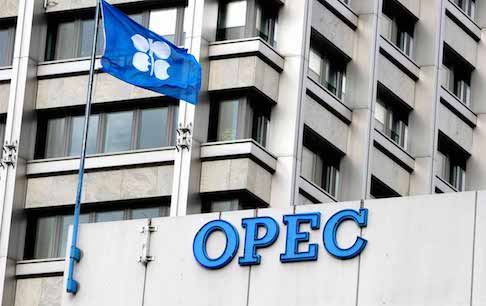
Torough David, Abuja
The Organization of the Petroleum Exporting Countries (OPEC) has launched a global investment drive seeking attention to creating value in the upstream oil and gas industry.
The Organization is calling for urgent and sustained investment in the global upstream oil sector, warning that a cumulative $14.
9tn will be required between 2025 and 2050 to meet projected demand and prevent a future energy crisis.This investment figure, equivalent to $574bn annually, represents the bulk of the $18.2 trillion in total oil-related investments needed over the 25-year period.
The OPEC had projected that $18.2tn investment would be required to meet global oil demand between 2025 and 2050, as it dismissed the notion of a looming peak in fossil fuel consumption as a “fantasy.
”According to the 2025 World Oil Outlook of OPEC, oil demand is projected to rise from 103.7 million barrels per day in 2024 to 116.5 mb/d by 2045 and peaking at around 123 mb/d by 2050, an 18.6 per cent increase over 26 years.
It also noted the need for continued investments in various segments of the sector to meet this demand.
It noted that of the total investment requirement, upstream operations, including exploration and production, are expected to gulp the lion’s share at $14.9tn, or $574bn per year, as producers scramble to ramp up supply. Midstream and downstream investments will require $1.3tn and $2tn, respectively.
“Cumulative oil-related investment requirements to meet projected demand are assessed at $18.2tn over the period between 2025 and 2050.
“This is marginally higher than projected in the WOO 2024, as despite the outlook period being one year shorter, this Outlook has also seen long-term oil demand revised upwards, and liquids supply has followed.
“Total upstream investment requirements make up the bulk of the needed capital expenditure, now projected at $14.9tn, or $574bn per annum. Downstream and midstream investment requirements are projected at $2tn and $1.3tn, respectively,” the report said.
OPEC Secretary-General, Haitham Al Ghais, said continued investments are essential to guarantee future energy security and affordability, especially in the Global South.
“There is no peak oil demand on the horizon,” Al Ghais declared in the report’s foreword. “Efforts to rapidly phase out fossil fuels are unrealistic and disregard energy security, affordability, and socio-economic realities of billions still lacking basic energy access,” he said.
Oil & Gas
FG Declares End to Dormant Fields on Oil Production

By David Torough, Abuja
In a renewed push to meet its OPEC production quota and 2025 budgetary targets, the Federal Government yesterday declared an end to the era where oil companies acquire field licenses and leave them dormant.
The government warned that it would no longer tolerate operators lacking the technical and financial capacity to develop oil fields, stressing that such licenses would be withdrawn.
Minister of State for Petroleum Resources (Oil), Senator Heineken Lokpobiri issued the warning at the ongoing 2025 Nigeria Oil and Gas Energy Week in Abuja.
Lokpobiri said the government was determined to maximize oil production by ensuring that only serious investors retain access to Nigeria’s hydrocarbon resources.
The conference had the theme: “Accelerating Energy Progress Through Investment, Global Partnerships and Innovation”.
Lokobiri stated that, “In our ongoing drive to boost national oil production, the Federal Government remains resolute in ensuring that maximum value is derived from upstream assets currently held by operators.
“This objective has taken on greater urgency as global financing for oil and gas projects continues to tighten, making it increasingly difficult for all operators to secure the capital needed to develop these assets.
“It is no longer acceptable for critical national resources to remain in the hands of companies that lack the technical or financial capacity to optimize them or worse, those who use such licenses merely as a lever to access scarce capital, only to divert it to unrelated ventures.
“Our oil and gas industry has witnessed far too many cautionary tales of this nature, and we must now draw a clear line”.
He said the government has engaged an international consultant to evaluate the 273 fees and rates faced by oil companies in the country to align them with international best practices.
Also, the Minister of State Petroleum Resources (Gas), Ekperikpe Ekpo said Nigeria had proven gas reserves of over 200 trillion cubic feet, yet value would only be created when resources were developed and utilised.
Ekpo said that through the Decade of Gas initiative, the country was focused on translating its vast gas wealth into tangible socio-economic benefits.
This, he said, included driving industrialisation, expanding power generation, increasing domestic Liquefied Petroleum Gas (LPG) usage, deepening gas-to-transport adoption, and growing gas export capacity.
Group Chief Executive Officer of NNPC Ltd, Engr. Bashir Bayo Ojulari disclosed that the Ajaokuta-Kaduna-Kano (AKK) Gas Pipeline has successfully crossed the River Niger, boosting the hope of the project’s completion by Q4 2025.
Ojulari, who described the development as a significant milestone, said the feat was achieved through effective and innovative contract reengineering and industry collaboration.
He also disclosed that for the first time in a long while, the nation enjoyed 100% crude oil pipelines availability throughout June 2025.
He said the feat which was possible through the industry-wide security interventions led by the NNPC helped to boost crude oil production.
He however called for more investments to boost production, adding that NNPC Ltd has been able to turn the narrative around by consistently meeting its cash-call obligations to Joint Venture operations.
He said the Petroleum Industry Act (PIA) has placed NNPC Ltd in a good position to live up to its responsibility of leading the industry in financing projects.





